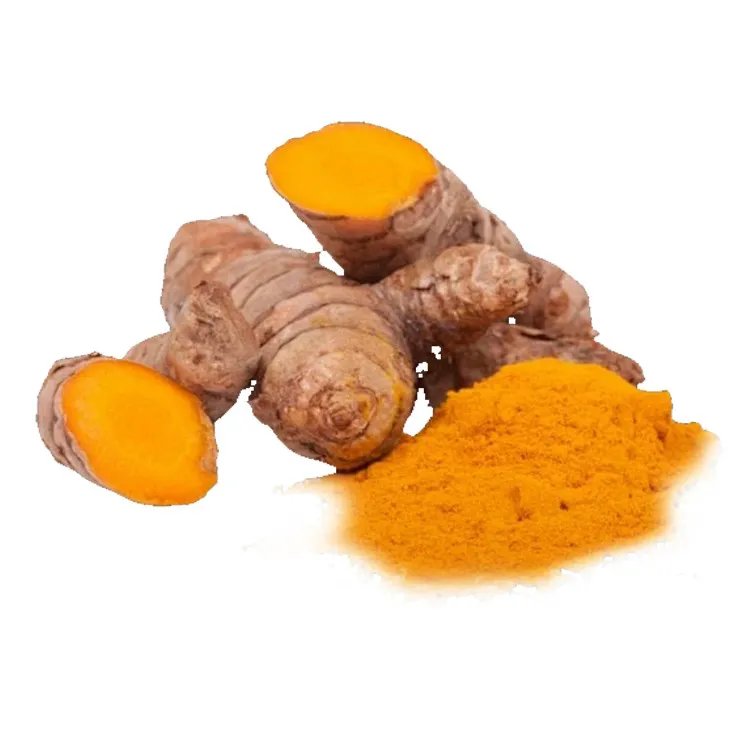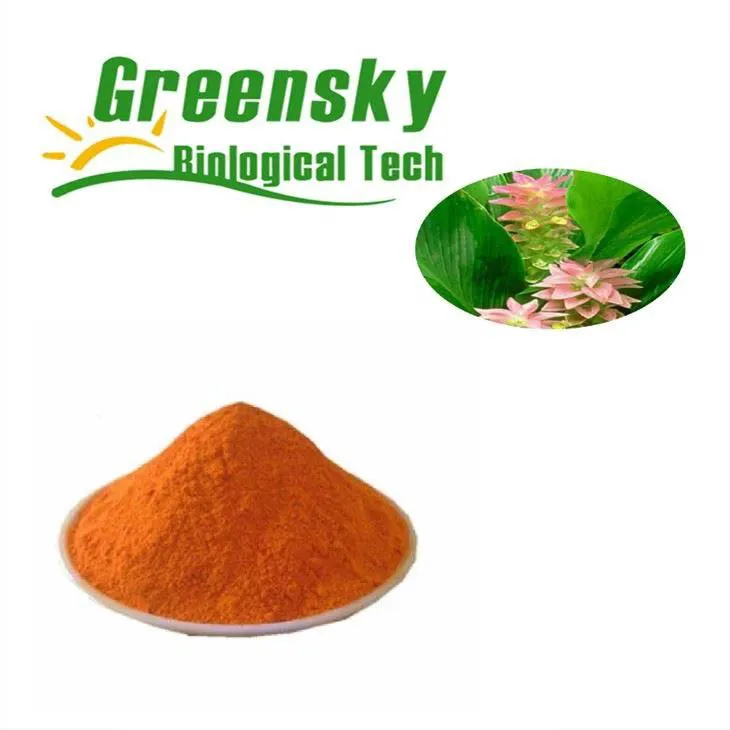- 0086-571-85302990
- sales@greenskybio.com
Curcumin and Kidney Health: An Exploration of Safety and Benefits
2025-07-14

Curcumin, a bright yellow compound found predominantly in the spice turmeric, has long been heralded for its myriad health benefits. Traditionally used in Indian and Southeast Asian cuisine, turmeric's Curcumin component has been extensively studied for its potential therapeutic properties, including anti-inflammatory, antioxidant, and anticancer effects. However, as its popularity surges among wellness enthusiasts and within the supplement industry, questions about the safety of Curcumin, particularly concerning kidney health, have emerged. This article delves into the safety profile of curcumin for the kidneys, exploring both scientific studies and current understandings within the healthcare community.
Understanding Curcumin
Curcumin is part of a group of chemical compounds known as curcuminoids, which are the active constituents of turmeric, giving it its characteristic color and proposed health benefits. Part of its appeal lies in its natural origin and long-standing use in traditional medicine, often purported to alleviate conditions ranging from minor inflammation to chronic diseases. Despite its potential, the bioavailability of curcumin is notably low, meaning that when consumed, it is poorly absorbed into the bloodstream, rapidly metabolized, and eliminated from the body.

The Kidneys: A Vital Organ
The kidneys play a critical role in maintaining overall health by filtering waste products from the blood, balancing electrolytes, controlling blood pressure, and managing fluid balance. The implications of any substance on renal function are significant, as the kidneys are particularly vulnerable to damage from toxins and excessive compounds that they filter out from the body.

Curcumin and Kidney Health: The Evidence
Much of the concern around curcumin's safety for the kidneys stems from its potent biochemical activity, which, while beneficial, could pose risks if not properly managed or if consumed in excessively high doses. However, existing research mainly points to curcumin’s protective rather than harmful effects on the kidneys.
Protective Effects
Several studies indicate that curcumin offers nephroprotective (kidney-protecting) benefits. Curcumin's powerful antioxidant and anti-inflammatory properties can help mitigate oxidative stress and inflammation, two prominent factors often involved in kidney damage. Oxidative stress, in particular, plays a key role in the progression of Chronic Kidney Disease (CKD), and several studies have suggested that curcumin can help reduce these oxidative markers.
For instance, a 2017 study published in The Clinical Journal of the American Society of Nephrology highlighted curcumin's potential in reducing inflammation and slowing down the progression of CKD. Another study noted its ability to attenuate diabetic nephropathy, a common diabetic complication that can lead to kidney failure, by modulating inflammatory pathways and oxidative stress.

Concerns and Safety
Despite its benefits, concerns about curcumin's safety are primarily anecdotal and arise when it is taken in high doses, especially as a supplement. High doses of curcumin might lead to side effects such as gastrointestinal distress, and very rarely, it could potentially affect kidney function. However, these instances are extremely rare and often associated with doses far exceeding typical dietary intake.
The risk for adverse effects increases with the consumption of curcumin supplements due to concentrated dosages. Therefore, while curcumin from dietary sources (like turmeric in curries) is generally considered safe, caution is advised with supplemental forms, particularly for individuals with pre-existing kidney conditions, or for those who are simultaneously on medications affecting the kidneys.

Guidelines for Safe Consumption
For the majority of individuals, incorporating turmeric into the diet is safe and can be beneficial. However, several guidelines can optimize safety and efficacy:
1. Moderation is Key: It is crucial to adhere to recommended doses when using curcumin supplements. Consulting a healthcare provider can help optimize individual dosage needs.
2. Monitor Kidney Function: Individuals with existing kidney conditions should monitor their kidney function regularly and discuss any new supplements with their healthcare provider.
3. Check for Interactions: Those on medication, particularly anticoagulants, or treatments affecting liver enzymes, should be cautious, as curcumin can interact with these medicines.
4. Bioavailability Enhancers: Since curcumin isn’t easily absorbed by the body, combining it with black pepper (which contains piperine) or fats can enhance absorption.

Conclusion
The narrative surrounding curcumin and kidney health is largely positive, emphasizing its potential benefits rather than risks. While curcumin exhibits promising nephroprotective properties, as with any supplement or natural remedy, informed and moderated consumption is key. To avoid potential risks, especially pertaining to high supplemental dosages, individuals should seek guidance from healthcare professionals, particularly those with pre-existing conditions.
In conclusion, within the framework of a balanced diet, curcumin can be a friend rather than a foe to kidney health, contributing to overall well-being and potentially preventing the onset or progression of kidney-related ailments. However, caution is always warranted in medical contexts, reinforcing the importance of personalized healthcare guidance.
- ▶ Hesperidin
- ▶ citrus bioflavonoids
- ▶ plant extract
- ▶ lycopene
- ▶ Diosmin
- ▶ Grape seed extract
- ▶ Sea buckthorn Juice Powder
- ▶ Beetroot powder
- ▶ Hops Extract
- ▶ Artichoke Extract
- ▶ Reishi mushroom extract
- ▶ Astaxanthin
- ▶ Green Tea Extract
- ▶ Curcumin Extract
- ▶ Horse Chestnut Extract
- ▶ Other Problems
- ▶ Boswellia Serrata Extract
- ▶ Resveratrol Extract
- ▶ Marigold Extract
- ▶ Grape Leaf Extract
- ▶ blog3
- ▶ Aminolevulinic acid
- ▶ Cranberry Extract
- ▶ Red Yeast Rice
- ▶ Red Wine Extract
-
Milk Thistle Extract
2025-07-14
-
Genistein
2025-07-14
-
Carrageenan Extract Powder
2025-07-14
-
Red Wine Extract
2025-07-14
-
Bitter Melon Extract
2025-07-14
-
Curcumin Extract
2025-07-14
-
Avocado Extract Powder
2025-07-14
-
Aguaje Extract
2025-07-14
-
Golden Seal Extract
2025-07-14
-
Selenium yeast
2025-07-14





















